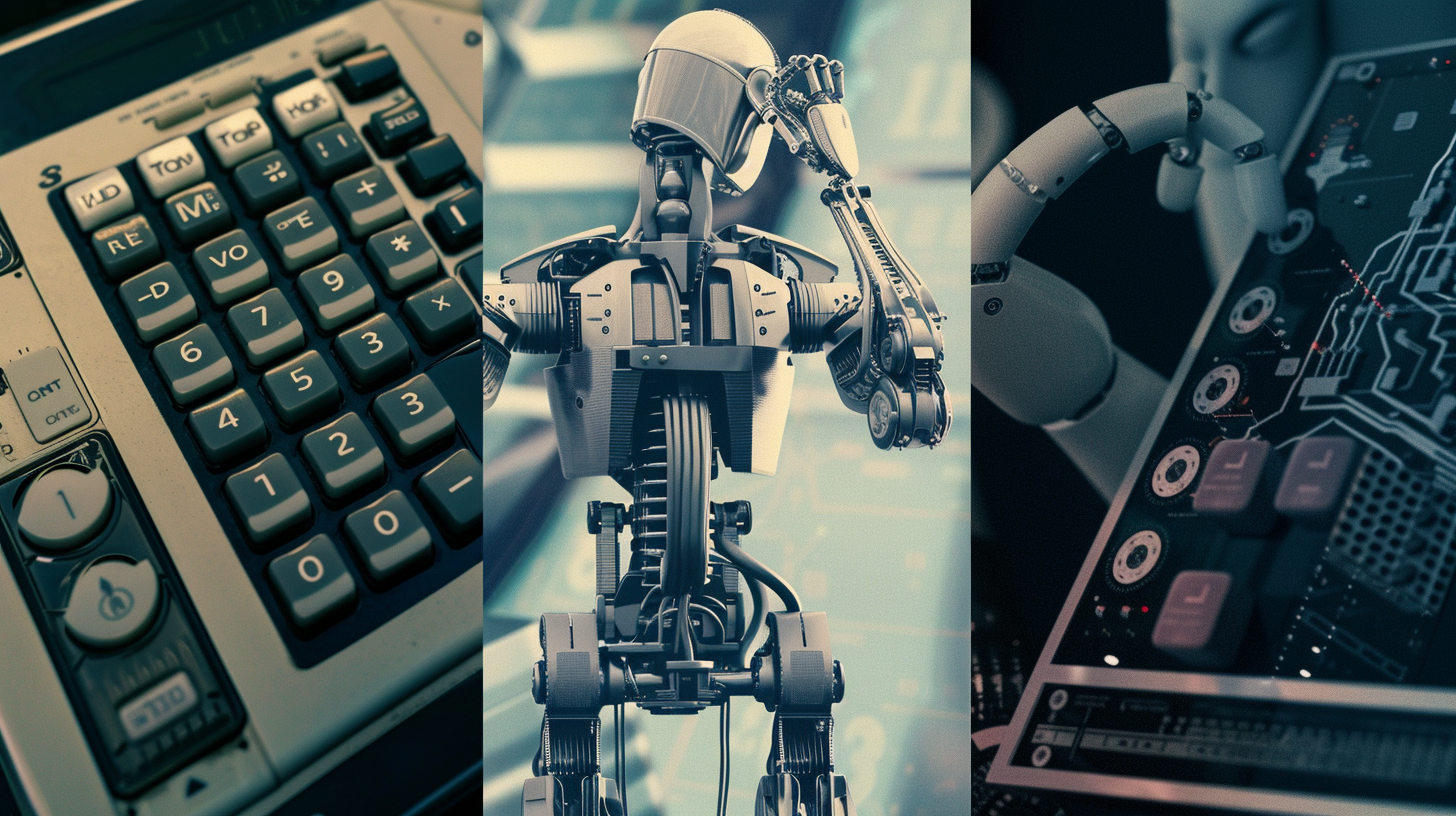Embark on a mesmerizing journey through the evolution of Artificial Intelligence, starting with its mythical roots and key milestones like the Turing test and IBM’s Deep Blue triumph. Witness the progression of AI concepts, from machine learning to neural networks, exploring its impact on healthcare, finance, marketing, and transportation. Uncover the ethical considerations surrounding AI’s enhanced data usage while discovering the preferred programming languages for AI projects. Delve into the diverse sectors benefiting from AI, from agriculture to entertainment, as AI continues to reshape traditional practices and spark innovation across industries.
Key Takeaways
- Greek mythology influences early AI concepts.
- Alan Turing introduces the Turing test in the 1950s.
- MIT establishes the first AI lab in 1959.
- IBM’s Deep Blue defeats a chess champion in 1997.
- AI evolution from narrow to super intelligence reshapes industries.
From Mythology to Turing Test
Delve into the fascinating origins of artificial intelligence, tracing back from the realms of Greek myths to the groundbreaking proposal of the Turing test by Alan Turing in the 1950s. In Greek myths, Hephaestus created mechanical servants, sowing the seeds of AI curiosity. Turing’s legacy flourished with his AI proposal, igniting a technological revolution. This journey reflects a quest for freedom in technology, challenging boundaries and sculpting innovation. Greek myths sparked wonder, while Turing’s test laid the foundation for AI’s progression. Embrace the spirit of exploration and liberation as you unravel the ancient whispers of AI’s origin and the modern echoes of Turing’s visionary contributions. The blend of ancient storytelling and Turing’s futuristic vision births a landscape where imagination dances with reality.
Pioneering AI Milestones
Exploring the groundbreaking advancements in artificial intelligence, the historical journey of AI is marked by pivotal milestones that have shaped the landscape of technology. From its Greek mythology influence to Alan Turing’s legacy with the Turing test, AI has traversed transformative paths. Notable moments include the coining of “artificial intelligence” in 1956, the establishment of the first AI lab at MIT in 1959, and IBM’s Deep Blue defeating a chess champion in 1997. Progress continued with Stanford’s robotic car winning the 2005 DARPA Challenge and IBM’s Watson triumphing in Jeopardy in 2011. These milestones showcase the relentless evolution of AI, propelling us into a future where technological boundaries are only limited by our imagination.
Evolving Concepts and Types
Considering the dynamic nature of artificial intelligence, the field continues to evolve with emerging concepts and diverse types. Incremental improvements propel AI forward, refining its cognitive capabilities. Core concepts like machine learning algorithms and neural networks push boundaries, leading to enhanced problem-solving abilities. As AI progresses, it branches into various types such as narrow intelligence, driving focused tasks efficiently, while general intelligence aims for broader applications. The quest for super intelligence looms on the horizon, promising unprecedented cognitive capacities. Understanding these evolving concepts and types is key to appreciating the multifaceted advancements in artificial intelligence, shaping a future where machines exhibit increasingly sophisticated cognitive functions.
Diverse Applications and Impact
Discussing a wide range of applications and their profound impact, artificial intelligence has become integral to various industries, driving innovation and efficiency. AI’s advent in sectors like healthcare has not only improved diagnostics and treatment plans but also raised ethical implications concerning privacy and data security. In finance, AI algorithms have enhanced predictive analysis, contributing to economic growth by optimizing investments. From marketing strategies to autonomous vehicles, AI’s capabilities have fundamentally altered the way businesses operate, leading to increased productivity and competitiveness. As industries continue to embrace AI technologies, it is crucial to acknowledge the ethical considerations surrounding data usage while leveraging the potential economic benefits for sustainable growth and advancement.
Programming Languages for AI
Python stands out as a preferred language for artificial intelligence due to its user-friendly nature and extensive library support, making it an ideal choice for AI developers. Python’s versatility enables tasks from data manipulation to complex algorithm implementation, providing a flexible environment for AI projects. On the other hand, R’s specificity in statistical computing makes it a valuable tool for data analysis and visualization in AI applications. Whether you seek the practicality of Python or the statistical prowess of R, these languages can empower you to delve into the intricate realms of artificial intelligence, serving as potent instruments for unlocking your creativity and problem-solving skills in the ever-evolving landscape of AI development.
AI in Various Sectors
Amid the rapid advancement of artificial intelligence, its impact on various sectors continues to redefine traditional practices and shape innovative approaches. When delving into the realm of AI applications, it’s intriguing to witness its transformative power in diverse fields:
- AI in agriculture: Through predictive analytics and sensors, AI optimizes crop yields, minimizes resource wastage, and offers valuable insights for sustainable farming practices.
- AI in entertainment: From personalized recommendations on streaming platforms to enhancing special effects in movies, AI continues to revolutionize how we consume entertainment, sparking creativity and enhancing user experiences.
Discover how AI’s disruptive influence extends beyond boundaries, empowering sectors with efficiency and creativity.
Machine Learning’s Vital Role
Machine learning stands at the forefront of artificial intelligence, driving advancements through data analysis, pattern recognition, and predictive modeling. It empowers you with valuable data insights and trend recognition, assisting in informed decision-making and strategic planning. Embrace the transformative potential of machine learning in unlocking hidden patterns within vast datasets, guiding you towards optimized outcomes and enhanced efficiency. By embracing the power of machine learning, you can gain a competitive edge in extracting actionable intelligence from complex information landscapes. Stay at the cutting edge of innovation by harnessing the capabilities of machine learning to uncover correlations and trends that pave the way for strategic growth and impactful decision-making.
Frequently Asked Questions
What Are the Ethical Implications of AI Development?
When considering AI development, ethical considerations are vital due to its societal impact. Ensuring fairness, transparency, and accountability in AI systems can prevent bias and discrimination. Safeguards against misuse of AI technology, such as invasion of privacy or reinforcement of harmful stereotypes, are necessary for its responsible deployment. By addressing these ethical implications proactively, you can contribute to a more equitable and beneficial integration of AI in society.
How Does AI Contribute to Creativity and Art?
AI empowers you to explore artistic innovation and foster creative expression. Through algorithms analyzing patterns, generating music, art, and poetry, you can push boundaries and unlock new avenues for creation without constraints. Embrace the freedom AI offers to experiment, collaborate, and enhance your artistic endeavors. Let your imagination soar as you leverage technology to amplify your unique voice and contribute to the ever-evolving landscape of creativity and art.
Can AI Completely Replace Human Jobs in the Future?
As technology advances, AI has the potential to revolutionize industries, impacting jobs economically. The fear of job displacement is valid. However, remember that humans possess unique skills that AI can’t replicate, such as creativity and emotional intelligence. Embrace this opportunity for growth. Stay adaptable and open to new ways of working alongside AI, allowing you to harness its power for innovation and collaboration rather than viewing it as a threat to your livelihood.
Is There a Risk of Bias and Discrimination in AI Algorithms?
Yes, there’s a risk of bias and discrimination in AI algorithms. Preventing bias and detecting discrimination are crucial in ensuring AI systems treat everyone fairly. Monitoring algorithms, diversifying data sets, and promoting ethical guidelines can help safeguard against these issues. Upholding transparency and accountability in AI development empowers you to challenge and address biases, fostering a more inclusive and equitable future driven by artificial intelligence.
How Can Individuals Protect Their Privacy in an Ai-Driven World?
To protect your privacy in an AI-driven world, utilize privacy measures like encryption and secure passwords to safeguard your data. Stay informed about data security practices and choose platforms that prioritize privacy in their AI algorithms. Regularly review and adjust your privacy settings on AI-driven devices and platforms. Being vigilant about your data protection empowers you to navigate the digital landscape with confidence while benefiting from the conveniences AI technologies offer.

